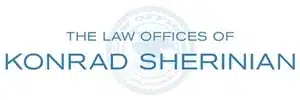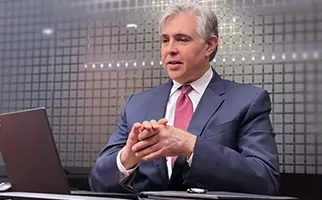A BRIEF HISTORY OF TRADEMARKS
Trademarks
It all started with pottery
Potters marks appear in various artifacts dating back to at least ancient Greece, and appear to be designed to identify the maker of various pottery items. However, these pottery marks do not appear to be trademarks in the modern sense of the word. Marks on various Roman artifacts suggest that trademarks may have been in use in ancient Rome.
Beginning in the Middle Ages, various guilds began to require their members to affix marks to goods produced by the members. These marks had many of the characteristics of modern marks in that they served to guarantee the quality of the goods as well as identify the manufacturer as a member of a particular guild. However, these marks were affixed to benefit the guilds, rather than the producer.
During the latter portion of the Middle Ages, laws began to develop to allow enforcement of marks. These laws grew out of forgery, counterfeiting, and fraud laws, and were criminal in nature. Civil protection was gradually added.
In 1803, France passed the “Factory, Manufacture and Workplace Act” which criminalized the act of passing off another’s seal as one’s own, as well as abusing the name of others or wrongfully using the name of production areas. Later, in 1857, France instituted the first comprehensive trademark system with the “Manufacture and Goods Mark Act.” This act setup a trademark deposit system that recognized both use-based and examination based trademark registration. This law continued in France in various forms until 1964, when it was repealed and replaced with France’s modern trademark system.
England did not establish a comprehensive trademark system until 1905, trailing France by nearly 50 years. However, in 1862, England passed the “Merchandise Marks Act,” which made it illegal to deal in products with deceptive indications.England also passed the “Trade Mark Registration Act” in 1875, which established a system to register trademarks.
In 1938, England established the first registration based on “intent-to-use.” In addition, England shifted to an examination based trademark registration system, and established an application publishing procedure. At the time, England had the most advanced trademark system in the world, and the 1938 Trademark Act served as the inspiration for most modern system, including the United States.
The first Federal statute dealing with trademarks in the United States was passed in 1870. However, the Supreme Court struck this statute down as exceeding the powers granted to Congress by the Copyright Clause. Congress responded by passing the Trade Mark Act of 1881 based on the Commerce Clause, which passed Constitutional scrutiny.
In 1946, Congress passed the Lanham Act, which continues to rule trademark issues today. In 1995, Congress passed the Federal Trademark Dilution Act, which protects “famous” marks from uses that would dilute their distinctiveness. More recently, Congress enacted the Anticybersquatting Consumer Protection Act to prevent predatory registration of domain names corresponding to famous marks.
If you have a question or issue regarding trademarks, please feel free to reach out to us via telephone or email. You may also fill out our online inquiry form and we will strive to get back to you within 24 hours.
Trademark 101
Watch Our Video
Watch our Trademark 101 video on trademarks. It covers a lot of the basics, and is presented by Konrad Sherinian, one of the most experienced trademark attorneys in the United States.
Call for a Consultation
(630) 318-2606
Let's Talk About Your Trademark
Phone Consultation
Find it easier to talk rather than write? Have a lot of questions you want to ask? Let's talk over the phone.
Virtual Consultation
Need to share something on screen with us? Like to see who you are working with? Let's get online.
In-Person Consultation
Prefer a face-to-face and a handshake? We have offices in Chicago or Naperville, Illinois.
If you have questions about the selection, registration, protection, or enforcement of your mark, talk to us. We offer experienced advice on the availability, registration, use, and enforcement of trademarks.
Available 24/7
Trademark FAQs
Here’s a list of the most frequently asked questions about trademarks. Open each to see our pages dedicated to that topic.
trademark?
A trademark is a distinctive sign, logo, or other symbol that identifies a business, its products, or its services.
How do I trademark a name or logo?
You can trademark a name or logo by applying to a trademark office, conducting a thorough search, and filing an application.
What is the USPTO?
The US Patent and Trademark Office (USPTO) is the federal agency responsible for granting patents and registering trademarks.
Why is a trademark search necessary?
A trademark search ensures your intended trademark is not already in use, thereby preventing potential legal conflicts.
What challenges might I face during a trademark search?
You may need help identifying similar sounding, appearing, or meaning trademarks. Hiring a trademark professional can help navigate these challenges.
What Kinds of Things Can I Trademark?
You can trademark more than your company’s logo. A trademark attorney in Chicago, IL can help you decide what items you can and should register as a trademark. For example, your lawyer may advise you to trademark a slogan or catchphrase.
See our page on trademarks for a more detailed answer.
Do I need trademark or copyright protection?
It might be difficult to understand whether or not you need to register a trademark or a copyright. Both are a type of intellectual property and can protect the rights to your creation or idea.
A copyright is a type of protection for an author’s “original works of authorship”. This could include music, art, screenplays, literary works, and so forth. Copyright does not protect intellectual property such as a slogan, name, title, or short phrase – those are definitely best protected by a trademark.
In some cases, such as a symbol, design, lettering, coloring, or typography, both a copyright and a trademark can provide protection.
A trademark offers the protection of a word, phrase, symbol, design or a combination of these.
It is possible that a logo be protected by copyright and trademark, but this will be dependent upon the amount of originality within the logo. In general the more ornate a logo is, and the more creativity it has, the better chance that it could be protected by both types of intellectual property.
If you have written a novel and are getting ready to publish it, you will likely want to pursue a copyright registration.
Do I need a trademark or patent?
There are many misconceptions concerning patents and a company’s trademark. Simply put, a patent is there to protect a new invention, while a trademark protects the specific branding that goes into promoting that new invention. For example, a patent could be for a specific type of sneaker, and the trademark is how that company markets it.
How much does it cost to hire a trademark attorney?
We offer personalized fixed fee services for Federal trademarks. Reach out to us for a quote based on your specific requirements and to know the average cost for trademark attorney.
What is the average cost of a trademark infringement lawsuit?
Trademark infringement lawsuits can be costly, varying depending on the complexity of the case. Proactively securing your trademark helps minimize the risk of such lawsuits.
How much does it cost to trademark something?
The cost of trademark registration depends on various factors. Contact our law firm for a comprehensive breakdown of the fees involved and trademark price.
What are the filing fees for a trademark application?
Filing fees for a trademark application include USPTO fees for filing your trademarks, examination fees associated with your examining attorney, and maintenance fees. We'll guide you through the fee structure and help you understand the costs.
Why should I hire a trademark attorney?
A trademark attorney ensures that your brand is legally protected and maximizes its value. They save you time, effort, and potential legal costs in the long run.
Experienced Trademark Attorneys
With decades of experience in trademark law, we have helped scores of companies protect their brands. Our team of skilled trademark lawyers and paralegals regularly prepare and prosecute state and federal trademark applications. Throughout the years, we have built an impressive network of other legal professionals outside the state and country, who are able to assist us in international trademark matters. It’s hard to find the experience Sherinian Law brings to the table.




